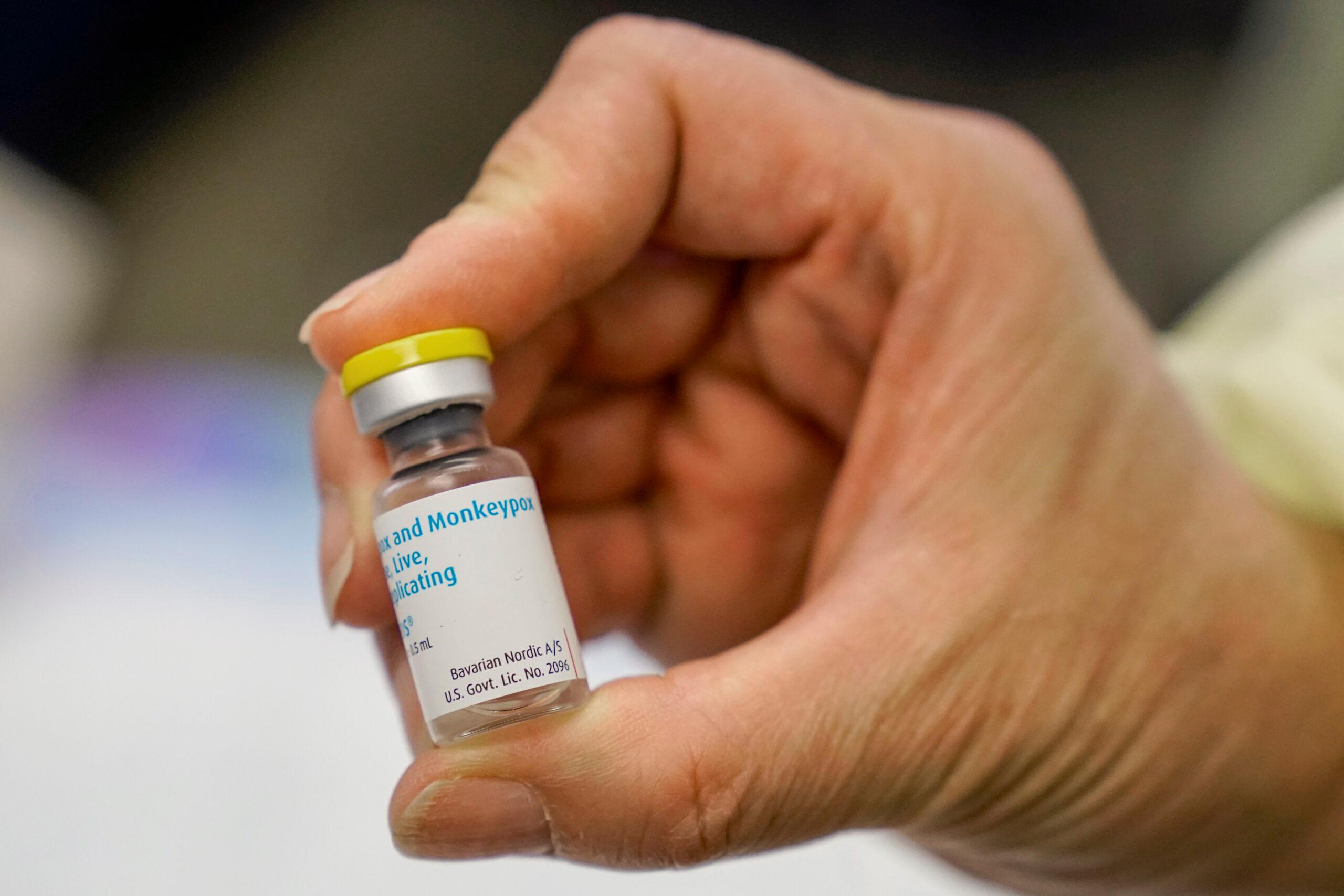
A rare monkeypox case has been reported in Colorado.
A man from Colorado was one of two cases in the U.S. of monkeypox-associated encephalomyelitis — a rare condition associated with the virus that causes inflammation of the brain and spinal cord. The other case was in Washington D.C.
CU Anschutz scientist Dr. Dan Pastula published a report with the Centers for Disease Control and Prevention “basically to get the word out to clinicians that this, while very rare, can happen.”
He said both men were hospitalized and later released.
“It seems like these pox viruses, in rare cases, can do this,” said Pastula, Associate Professor of Neurology, Medicine and Epidemiology at the University of Colorado Anschutz Medical Campus. “But again, I think it's emphasized that this is rare and not run of the mill. Most people with the current monkeypox virus have mild symptoms, and a mild rash, but that rash can be both contagious and painful.”
Pastula urged that it’s important “ not to panic about this, but to take it seriously.”
The Colorado case
According to the CDC report, the first case occurred in a previously healthy, gay man in his 30s in Colorado.
The man had no recognized exposure to the virus or recent travel and was not previously vaccinated against monkeypox or smallpox. In July 2022, he developed fever, chills, and malaise. Three days after his symptoms hit, an itchy rash appeared on his face and spread to his extremities and scrotum during the next several days. Swabs of a lesion confirmed he’d contracted the virus.
Nine days after the symptoms developed, he started to get weakness in his upper and lower extremities and numbness. He required hospitalization. Tests also revealed encephalomyelitis. Symptoms from the condition may be severe, but are treatable, according to WebMD, with most people making a full recovery.
He was given several treatments. Skin lesions resolved over three weeks and he was discharged to outpatient rehabilitation therapy.
More than 20,000 monkeypox cases have been recorded in the U.S. Colorado has reported nearly 300 cases.
Pastula said he also wanted to get the word out to high-risk groups, including the LGBTQ+ community, to take preventative steps like getting a monkeypox vaccine.
Whether the monkeypox vaccine protects against the inflammatory condition: "We think the monkeypox vaccine lowers the risk of severe disease from monkeypox, which would include neurologic syndromes such as encephalomyelitis," said Pastula.
The number of cases has been growing but the pace seems to have slowed in recent weeks. “The monkeypox virus is still circulating,” he said. “However, it does not look like it is exponentially increasing like it had before.”
The state’s dashboard shows how monkeypox has spread in Colorado. The first two cases were found in the state in May. The numbers grew from there to six in June, 66 in July, 157 in August and 51 so far in September. That state has recorded a total of 282 to date.
Based on the data being collected both here in Colorado and nationally, “we are seeing that the greatest risk at this time is among, gay, bisexual, or other men who have sex with men,” said state epidemiologist Dr. Rachel Herlihy last month. “That is primarily, here in Colorado, in the Denver metro area, but we have seen cases outside of the metro area as well.”
How monkeypox spreads
Monkeypox is a virus in the orthopox family of viruses, according to the state’s website. It is rare, but can be serious.
It can spread from person to person when someone who has monkeypox has close skin-to-skin contact with someone else. Close contact can mean physical contact with sores, bumps, or lesions of someone who has monkeypox. That contact includes sex. The virus can also spread through touching the bed linens or clothing of an infected person and can also live on other surfaces for some time.
Recent cases in the United States have been infected through person-to-person contact. Brief interactions without physical contact are unlikely to result in getting the virus.
Monkeypox has recently been spreading elsewhere, like in Canada, Europe, and Australia. It is endemic in central and west Africa.
Recent data suggest people who have recently traveled to a country where monkeypox has been reported or men who have sex with other men are at heightened risk.
The type of monkeypox spreading in the United States is rarely deadly and has a fatality rate of less than 1 percent, according to the state’s website.
In fact, in most cases, it will resolve on its own. Symptoms of the virus may begin with flu-like symptoms that can include fever, headache, muscle aches, swollen lymph nodes, and exhaustion. Typically, a rash or skin bumps develop within one to three days after the onset of fever, often beginning on the face then spreading to other parts of the body.








